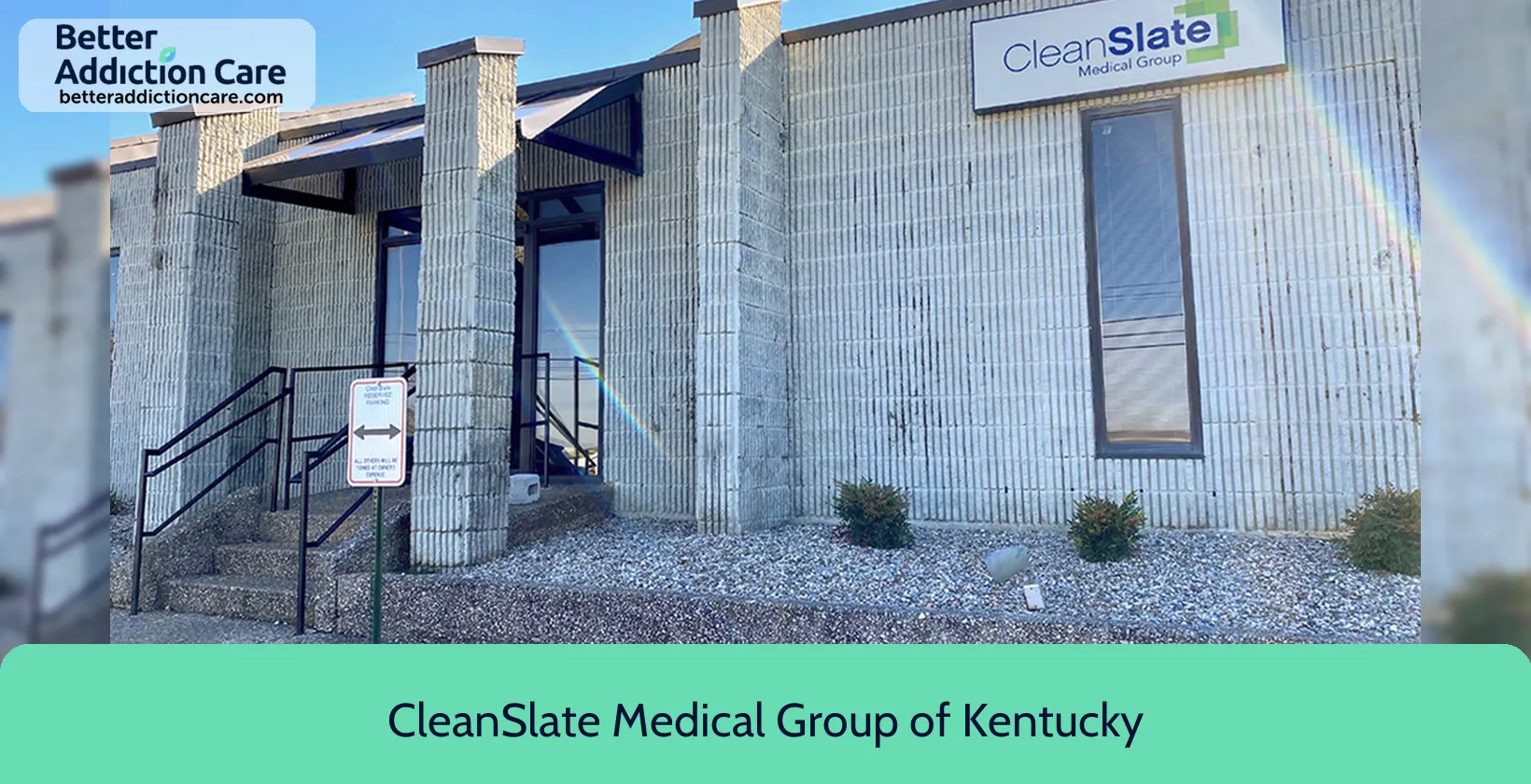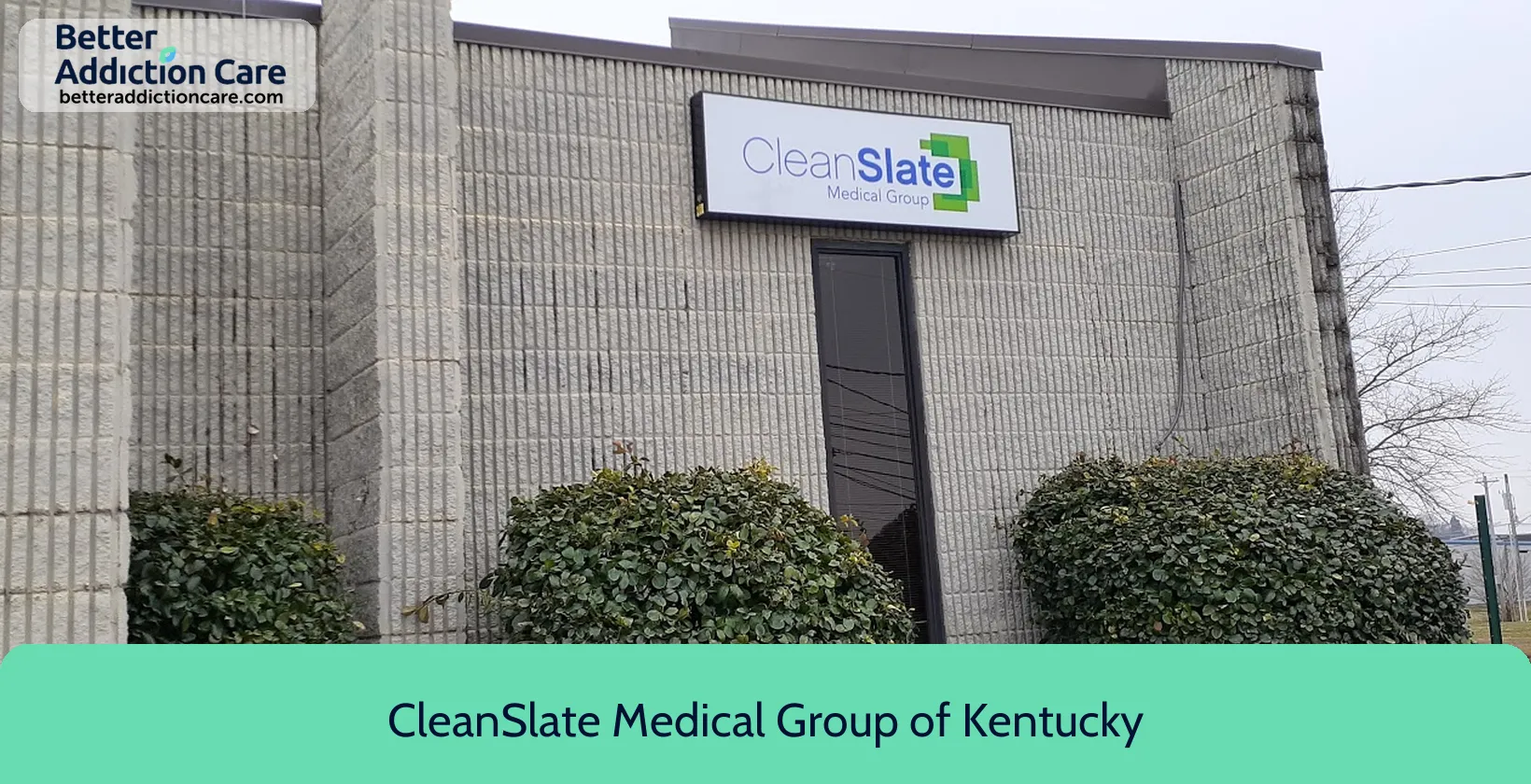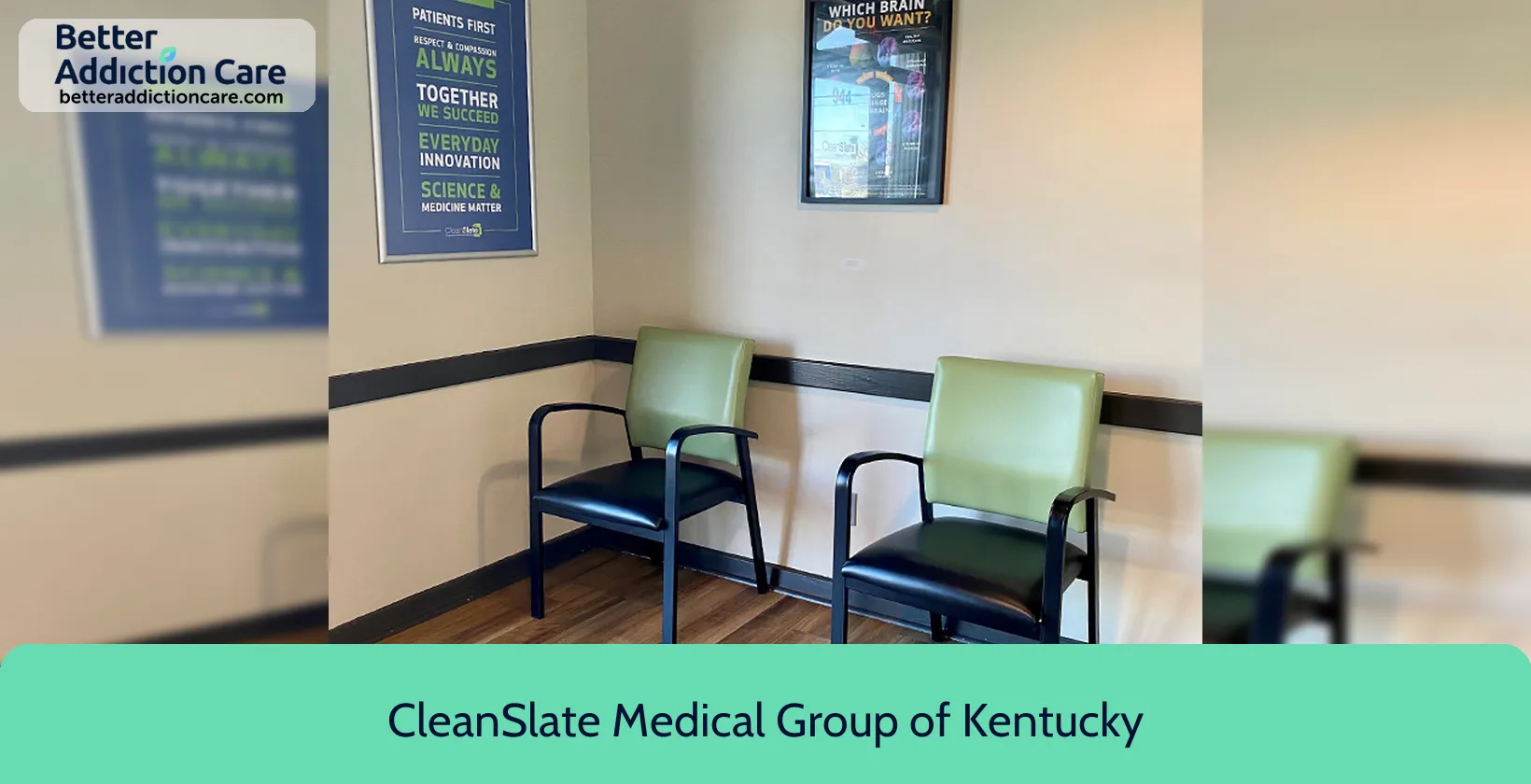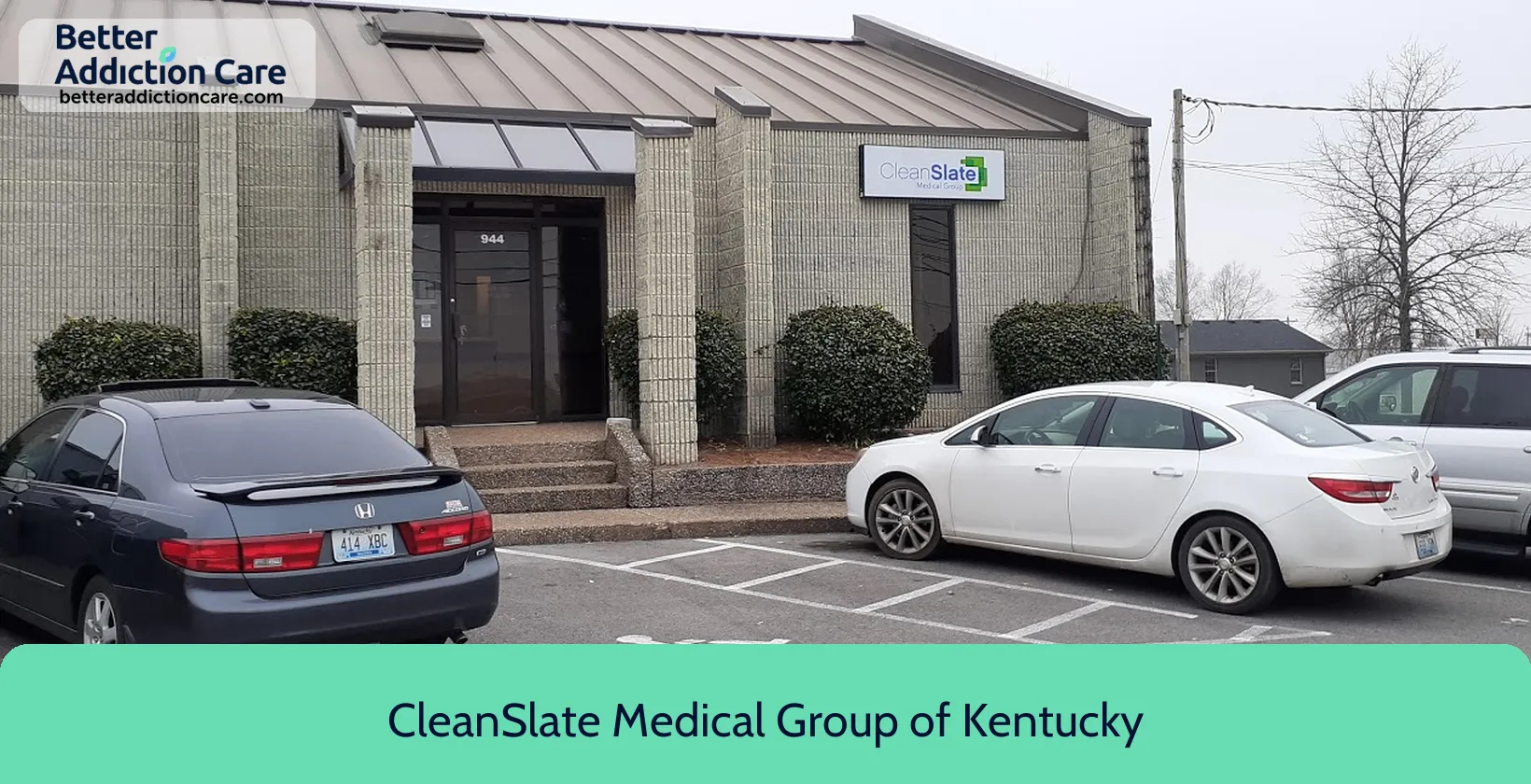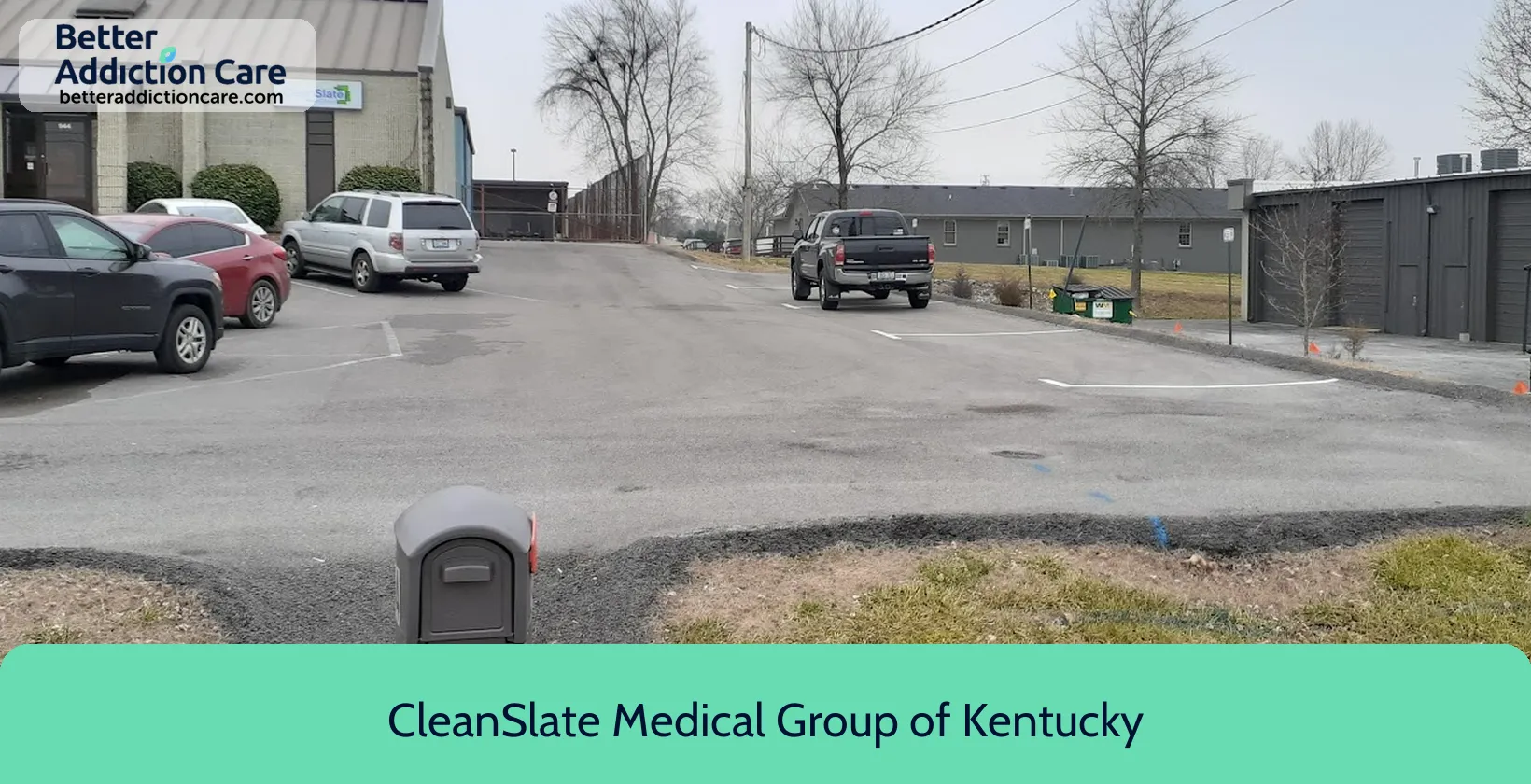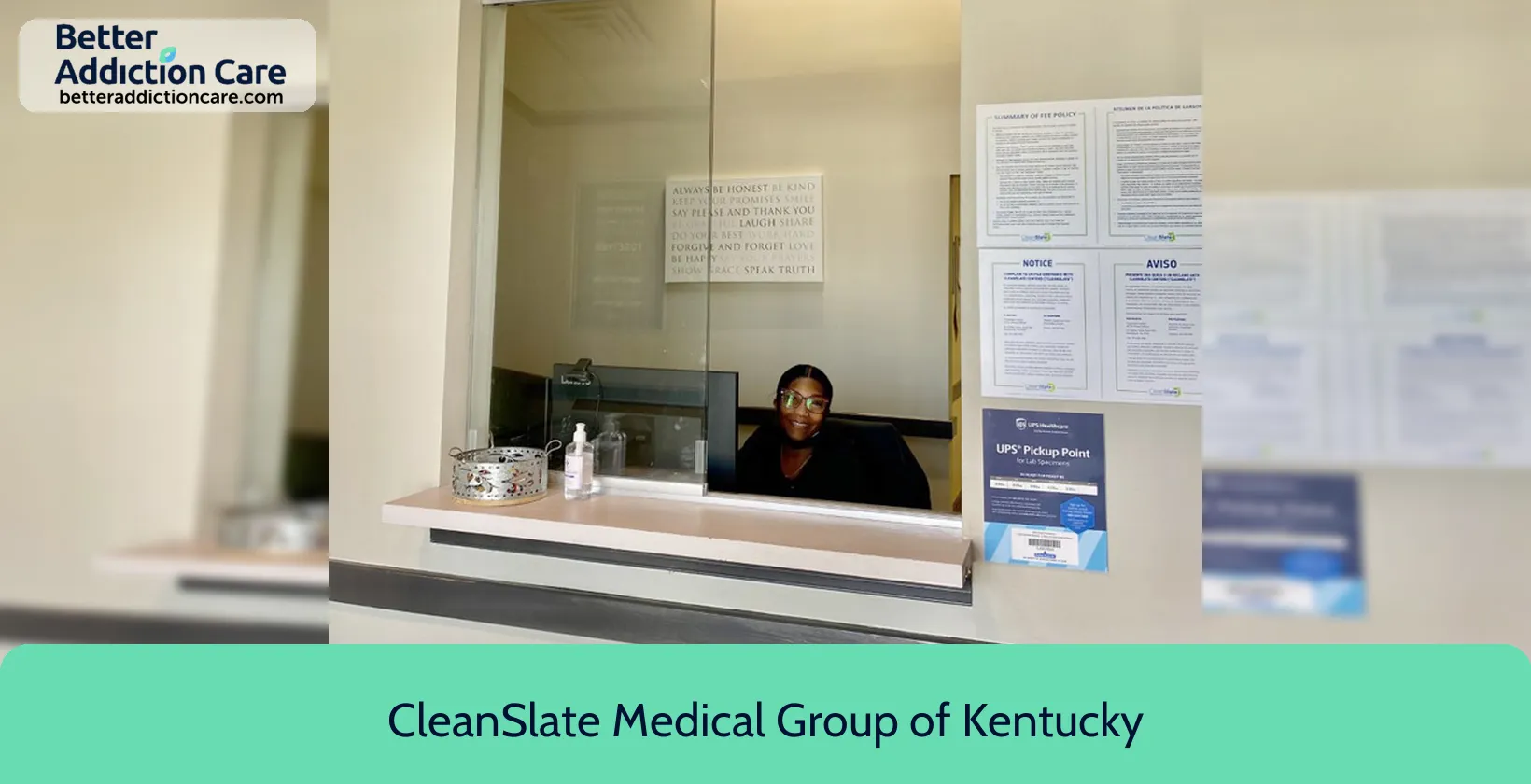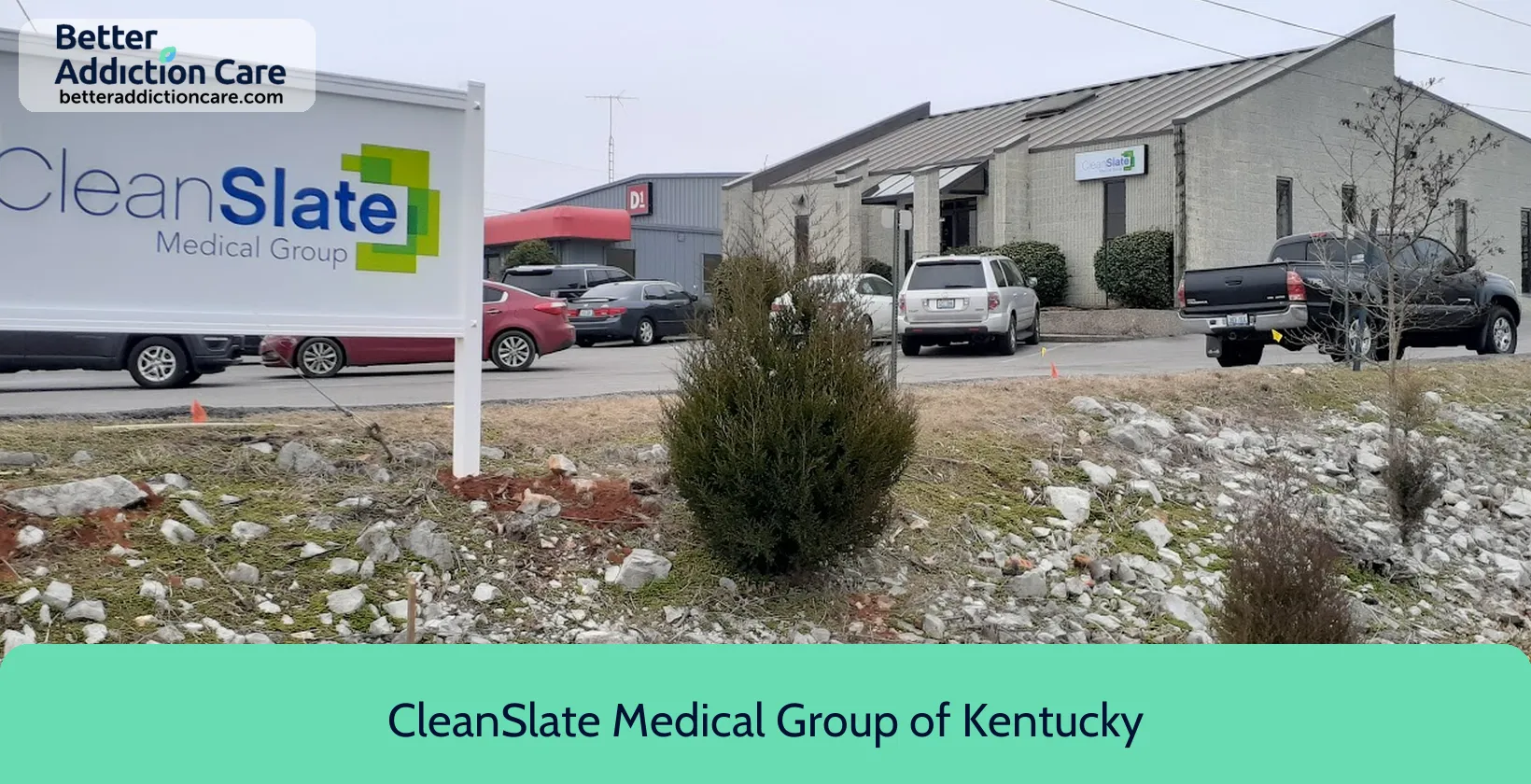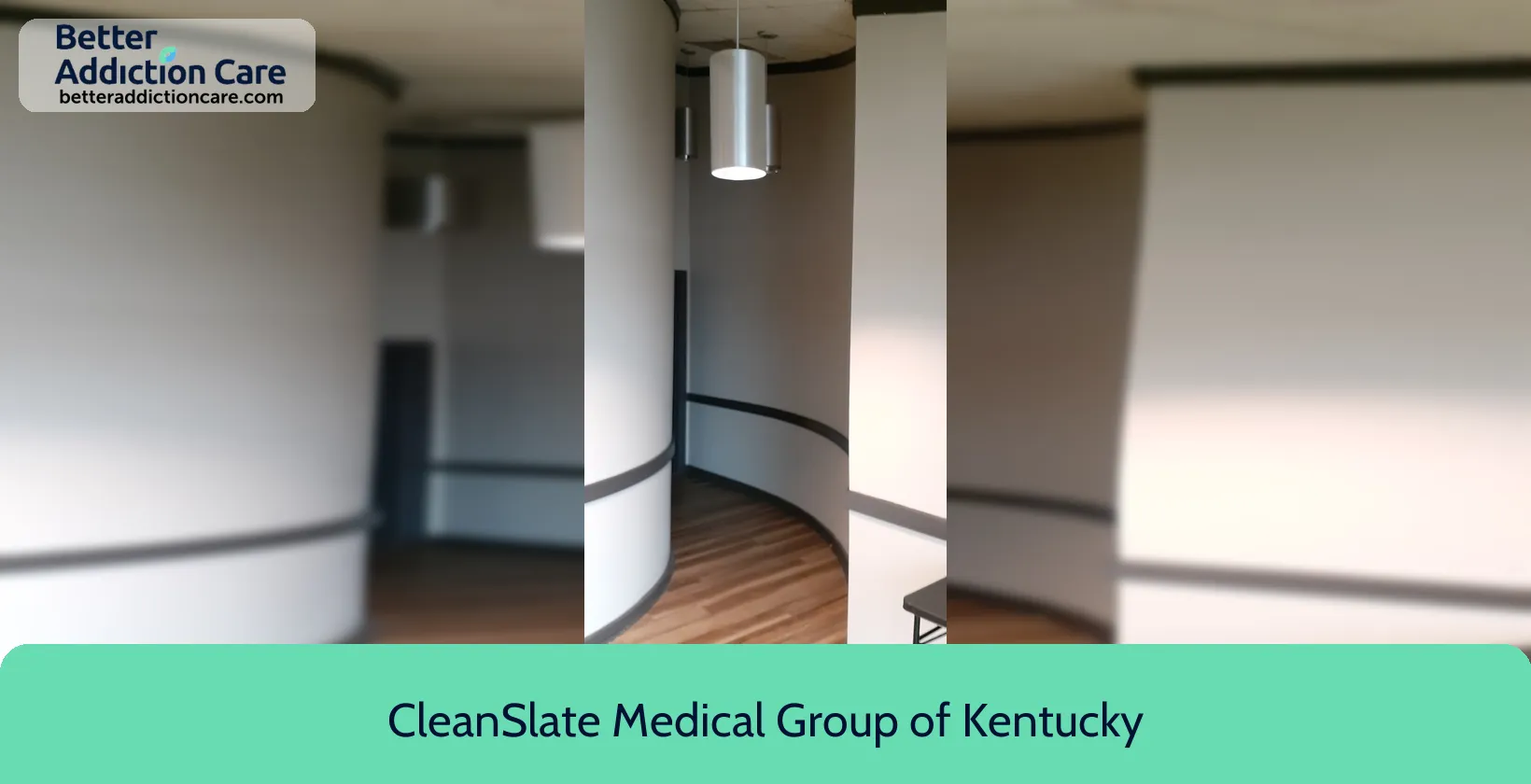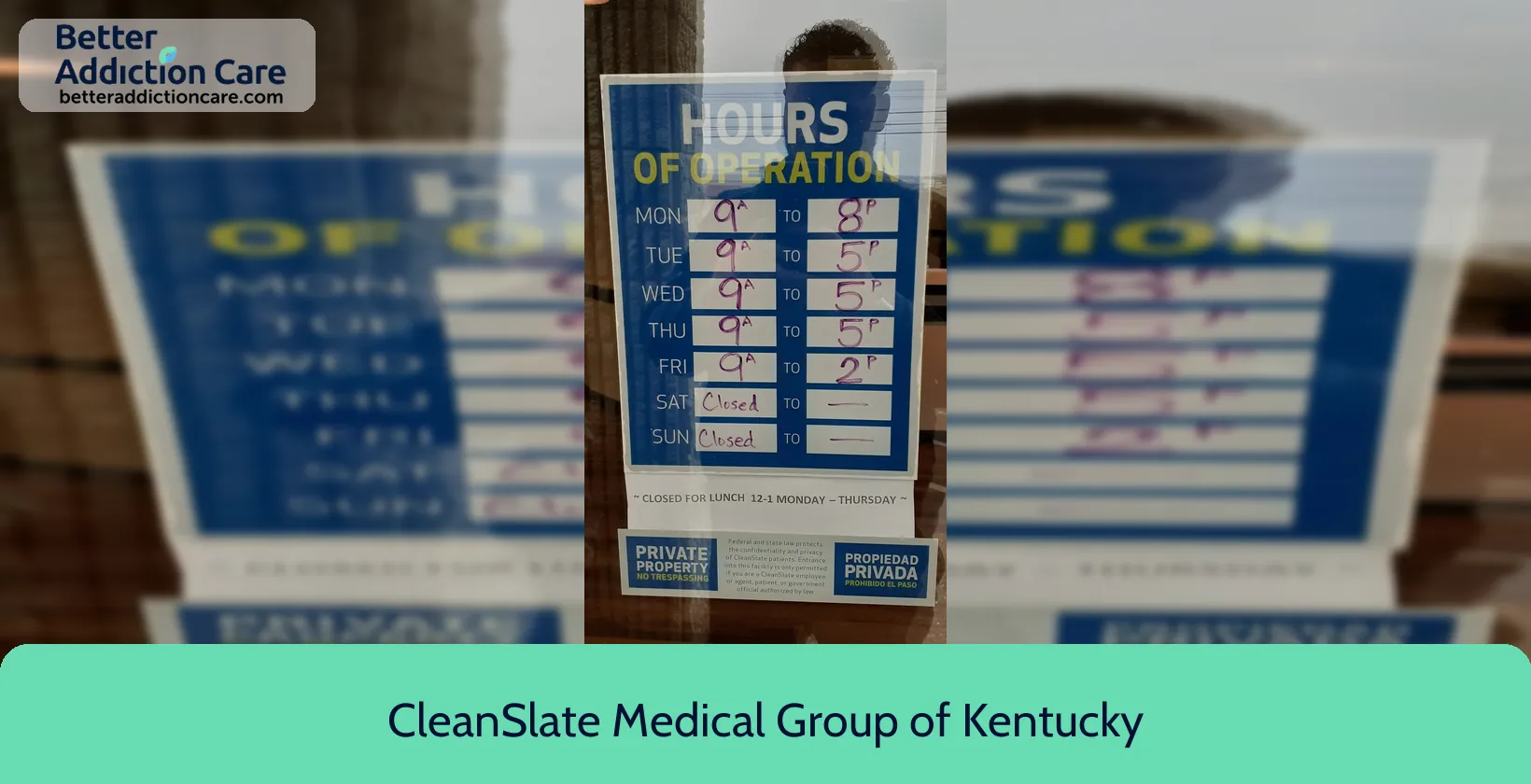CleanSlate Medical Group of Kentucky
Overview
CleanSlate Medical Group of Kentucky is an accredited substance abuse treatment center that provides outpatient treatment for men and women between 18 and 65+ years of age. As part of their special programs, CleanSlate Medical Group of Kentucky To help patients achieve sobriety, CleanSlate Medical Group of Kentucky provides intake assessments. Afterward, patients receive telemedicine/telehealth therapy, smoking/vaping/tobacco cessation counseling, and relapse prevention during treatment. CleanSlate Medical Group of Kentucky is located in Bowling Green, Kentucky, providing treatment for people in Warren County, accepting cash or self-payment, medicaid, and medicare.
CleanSlate Medical Group of Kentucky at a Glance
Payment Options
- Cash or self-payment
- Medicaid
- Medicare
- State-financed health insurance plan other than Medicaid
- Private health insurance
Assessments
- Screening for tobacco use
- Comprehensive substance use assessment
- Outreach to persons in the community
- Screening for substance use
Age Groups
- Young adults
- Adults
- Seniors
Ancillary Services
- Case management service
- Suicide prevention services
- Transportation assistance
Highlights About CleanSlate Medical Group of Kentucky
6.96/10
With an overall rating of 6.96/10, this facility has the following balanced range of services. Alcohol Rehabilitation: 8.00/10, Drug Rehab and Detox: 7.23/10, Treatment Options: 6.61/10, Insurance and Payments: 6.00/10.-
Alcohol Rehabilitation 8.00
-
Drug Rehab and Detox 7.23
-
Treatment Options 6.61
-
Insurance and Payments 6.00
Accreditations
Commission on Accreditation of Rehabilitation Facilities (CARF):

CARF accreditation is a prestigious recognition for rehabilitation and human service organizations. It signifies that an organization meets high-quality standards and is committed to providing top-level care. CARF conducts rigorous evaluations to ensure compliance, enhancing an organization's credibility and reassuring clients and funders of exceptional service quality. This accreditation promotes excellence and continual improvement in the rehabilitation and human services field.
SAMHSA certification for opioid treatment program (OTP):
SAMHSA's Opioid Treatment Programs (OTP) Accreditation is a rigorous recognition process, signaling an OTP's commitment to high-quality care for those with opioid use disorders. It assures patients, families, and the community that the program adheres to evidence-based practices, maintains a safe environment, and employs qualified staff. This accreditation represents a commitment to addressing the opioid epidemic and promoting recovery, symbolizing quality and accountability in opioid addiction treatment.
Drug Enforcement Agency (DEA):
DEA accreditation refers to the process by which a law enforcement agency is recognized by the Drug Enforcement Agency (DEA) as having met specific training, operational, and resource requirements necessary to participate in DEA-led drug enforcement efforts. This accreditation allows the agency to perform DEA-related tasks such as conducting investigations, executing federal search warrants, and participating in joint task forces.
Treatment At CleanSlate Medical Group of Kentucky
Treatment Conditions
- Alcoholism
- Substance use treatment
Care Levels
- Outpatient
- Outpatient methadone/buprenorphine or naltrexone treatment
- Regular outpatient treatment
Treatment Modalities
- Telemedicine/telehealth therapy
- Smoking/vaping/tobacco cessation counseling
- Relapse prevention
- Treatment for other addiction disorder
- Group counseling
Ancillary Services
Languages
- Sign language services for the deaf and hard of hearing
Additional Services
- Pharmacotherapies administered during treatment
- Housing services
- Drug or alcohol urine screening
Get Help Now
Common Questions About CleanSlate Medical Group of Kentucky
Contact Information
Other Facilities in Bowling Green

6.92

7.28

6.86

6.77

7.66
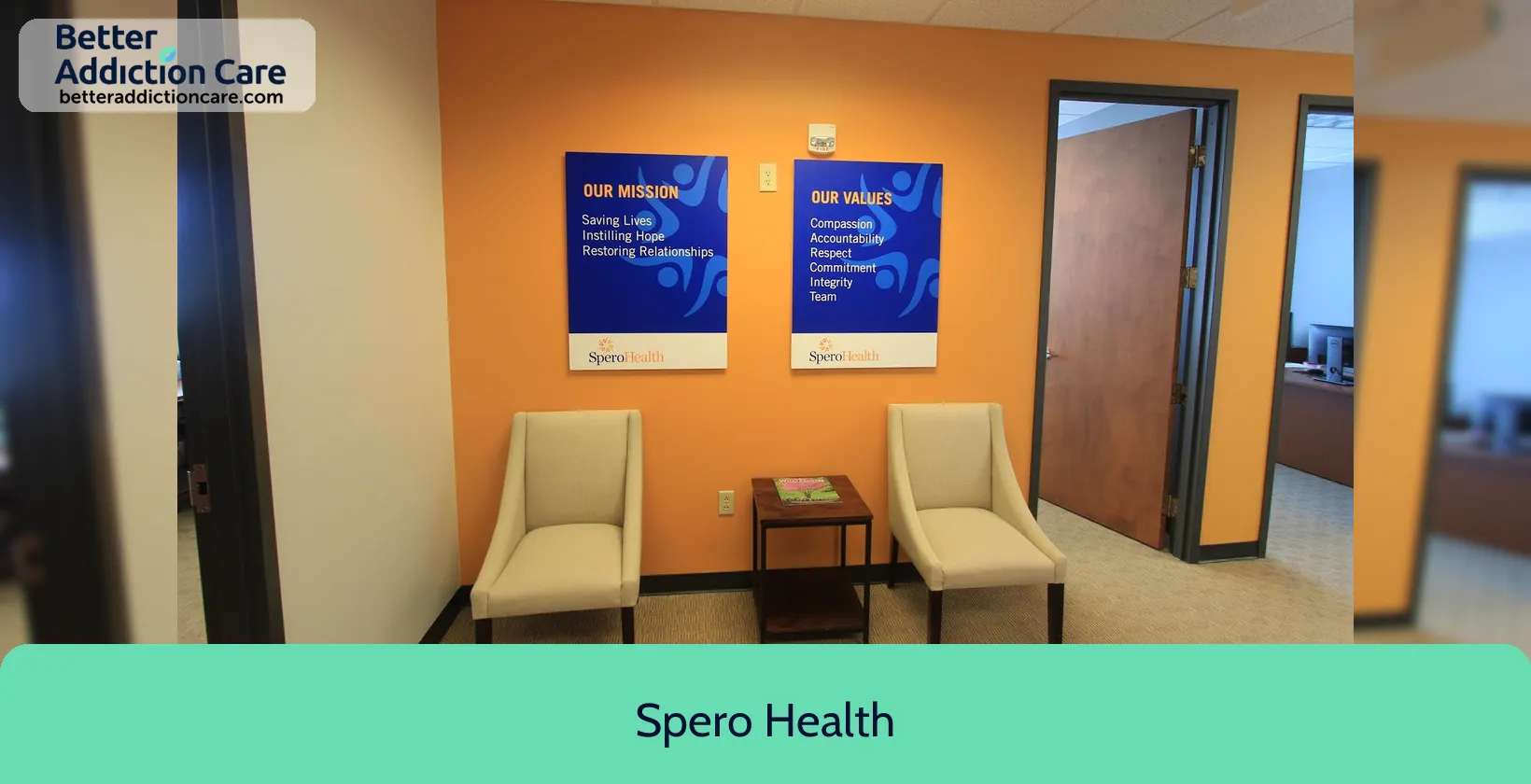
7.39
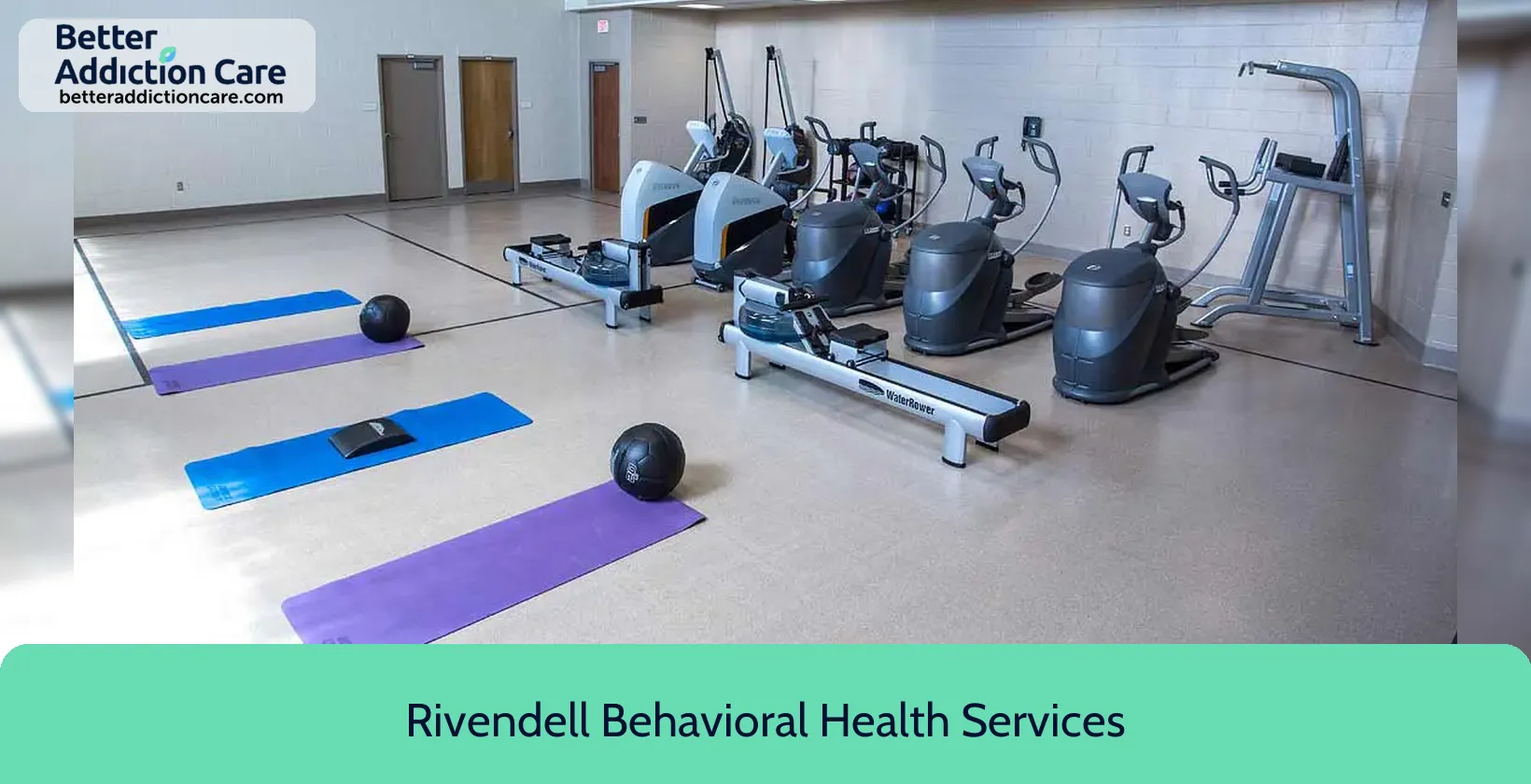
7.66
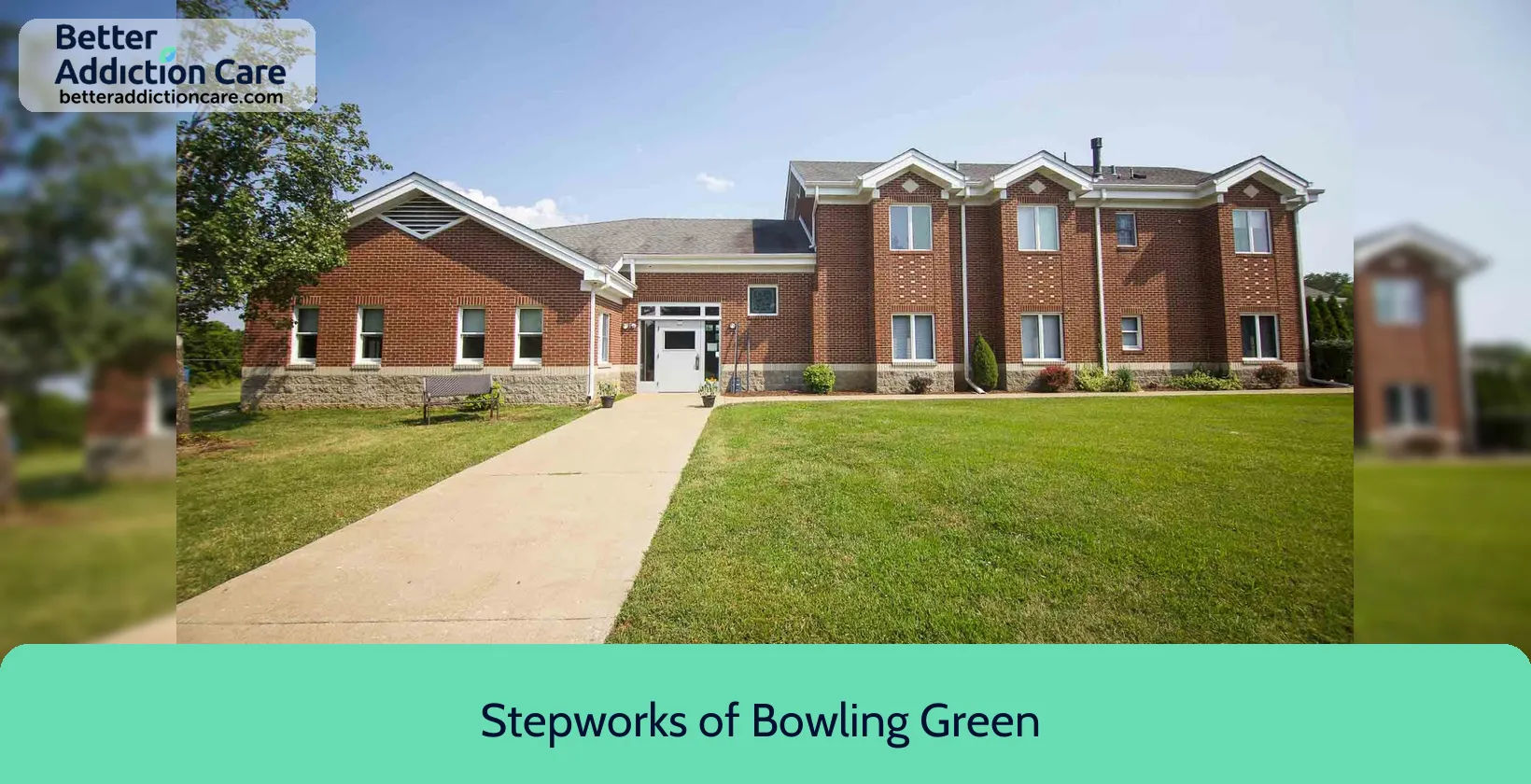
7.68
DISCLAIMER: The facility name, logo and brand are the property and registered trademarks of Stepworks of Bowling Green - Residential Treatment Services, and are being used for identification and informational purposes only. Use of these names, logos and brands shall not imply endorsement. BetterAddictionCare.com is not affiliated with or sponsored by Stepworks of Bowling Green - Residential Treatment Services.
